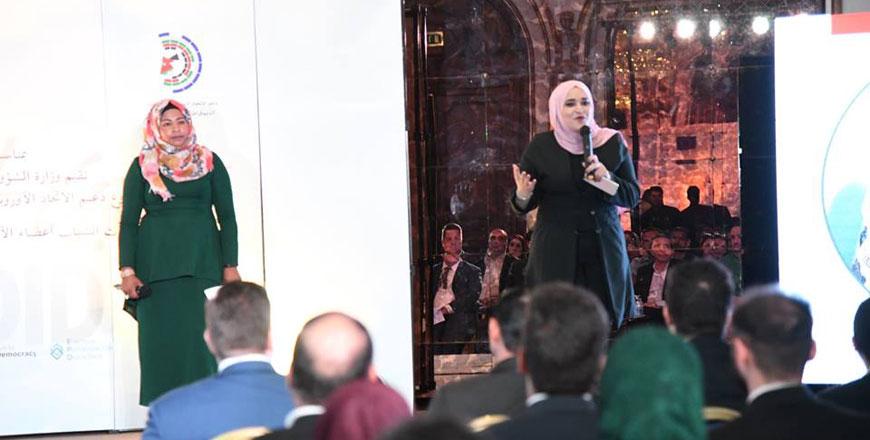You are here
Youth shun traditional political activism but technology offers new, attractive venues
By Maram Kayed - Sep 04,2018 - Last updated at Sep 04,2018

In this file photo, students at the University of Jordan protest the raise of tuition fees ( Photo courtesy of Ahl Hemmeh Facebook page)
AMMAN — According to experts, youth’s political involvement worldwide is taking a hit. Jordan is no exception, with a recent Brookings report that set out to evaluate the youth’s presence in decision-making politics concluding that the Jordanian youth are “marginalised politically, socially and economically”.
Interviews conducted by The Jordan Times with students in various local universities suggest that “political involvement” is usually associated with the traditional channels of participation, such as joining a political party.
Experts, however, expand the usage of the term so as to include participation in protests, sharing an opinion with a political sense on social media and even voluntary activities.
The traditional — and still very much predominant — aspect of participation, however, still brings up a fixed and mostly negative image in people’s minds.
“When people think of political parties, especially in Jordan, they usually fear to dicuss the topic, because it is often linked to opposition to the establishment,” said Musa Shteiwi, director of the Centre of Strategic Studies (CSS) at the University of Jordan, to The Jordan Times.
According to Shteiwi, this association goes back to the 1950s, when people witnessed some political parties not genuinely fighting for people’s rights within the legal framework, but instead deliberately fighting to overthrow the government and the ruling system all together.
The imposition of martial law and suspension of existing parties at the time led to a prolonged ban on forming, participating in, or advocating for political parties. Consequently, even after the ban was lifted in the 1990s, statistics show that people are still unwilling to have any connection with them.
Presently, the Ministry of Political and Parliamentary Affairs (MOPPA) has developed several programmes in partnership with international institutes to revive the youth’s political involvement, but two problems still prevail: the youth’s distrust of politics, and their family’s influence, especially as parents fear for future prosecution or any other legal
consequences.
Distrust of politics
One reason for the youth’s distrust of politics stems from their belief that nepotism, not competence, ends up being the deciding factor in the making of political figures, especially through elections.
“In the elections, sometimes a person can be perfect for the job but people won’t vote for him because he is from this or that city, so he ends up losing. As a result, someone who is totally ignorant takes his seat instead, just because he has the right last name,” said Haneen Fadiali, a business information technology student, to The Jordan Times.
“It doesn’t matter who I vote for; someone who has connections will win regardless,” said Abdel Rahman Barghouthi, a mechatronics engineering student, to The Jordan Times.
Another reason proved to be the youth’s distrust in the effect or change that their vote could bring. Whether it’s because of the nepotism or the fact that the student union “doesn’t bring forward any real change”, the students are oblivious to the importance of the democratic right that they are entitled to, which is to vote.
“My university doesn’t even hold elections. They appoint certain students to the union without consulting the rest of the student body,” said Tamara Qteishat, a student at Balqaa Applied University (BAU), to The Jordan Times.
“My vote doesn’t matter; you feel as if things are pre-set anyways,” added Tama Nabas, a student at the Jordanian University for Science and Technology.
“No one’s aim is to help the students. Their main objective is to show off and collect titles, so why bother?” Nour Ramahi, a student at the University of Jordan (UJ) said.
Although distrust of the political sector has most likely been acquired through the students’ own experiences, it could also be inherited from their families who have never paid any attention to political involvement.
“I obviously understand that not voting is wrong, because each vote counts, but I guess my uninvolvement can be traced back to my family’s disinterest in politics. They’ve never voted, and so neither have I,” said Alaa Kasrawi, a medical student at Hashemite University.
“I don’t like the topic and never have. It’s probably because my family has no interest in them as well,” agreed Salam Asurkhi, an applied English student at UJ.
The student’s lack of involvement in public affairs could also be genuine, such as focusing on their studies, which keeps them away from any extra-curricular activities, especially political activism, or certain values that they hold which cause them to despise politics in its entirety.
“A person can barely keep up with work and studying, and adding politics to that? No way!” said Musa Khader, a civil engineering student at BAU.
“These things are there to cause problems and tensions between students. So since I dislike chaos, voting would actually go against my principles,” said Malak Dabbas, a UJ student.
“I’m a very pacifist person, so I don’t like it when people get worked up about politics or fight because of it in front of me,” said Babel Jawahreh, from Yarmouk University.
Fear of prosecution
“Go in, get out, and don’t get involved in anything”, were the words that Afnan Muwafaq’s family said to her before she entered UJ.
“My dad is very protective, so he constantly tells me to stay away from anything that has to do with politics, warning that it could get me in trouble.
Afnan and many other students were specifically told by their parents to avoid politics, mainly because they lived at a time when people who took a political stand “faced countless complications”.
“It was very hard to get a government job, or any job at all, if you were known to be a member of [an underground] political party,” recalled a political science expert who preferred to remain unnamed.
While things have changed, and the MOPPA is exerting all possible effort to generate involvement in politics, individuals hold on to their reservations.
“People who express their thoughts even in a simple Facebook post can be questioned and prosecuted,” Abdul Rahman At’ot, a student at BAU, said to The Jordan Times.
A wider sense of the term ‘political involvement’
Although statistics provided by the CSS indicate very little participation in political parties from the youth, experts advise that the term “political involvement” be expanded to include political work action outside an institutionalised party as well.
“Contrary to common belief, the youth are actually very involved in politics,” revealed Shteiwi.
According to a survey by the centre, youth organise and participate in protests, give out fliers during parliamentary elections, express their thoughts on social media, and volunteer — all without being “formally” enrolled in a political party.
“It’s not fair to say that the youth are not involved. They have never been uninvolved, it’s just that now cyberspace has become their channel of participation instead of traditional outlets,” concluded Shteiwi.
Related Articles
AMMAN — Minister of Youth Mohammad Salameh Al Nabulsi has said that the ministry will work on enhancing the participation of young people in
AMMAN — A new funding plan for political parties was listed as one of the government’s 2018-2019 priorities, while talks between the entitie
AMMAN — Graduates of “Strengthening the Capacity of Young Political and Civic Actors Trainee Programme” expressed their gratitude to the pro
















